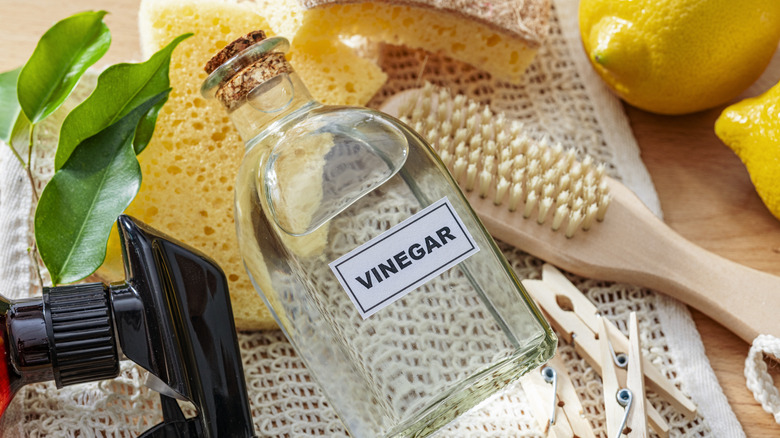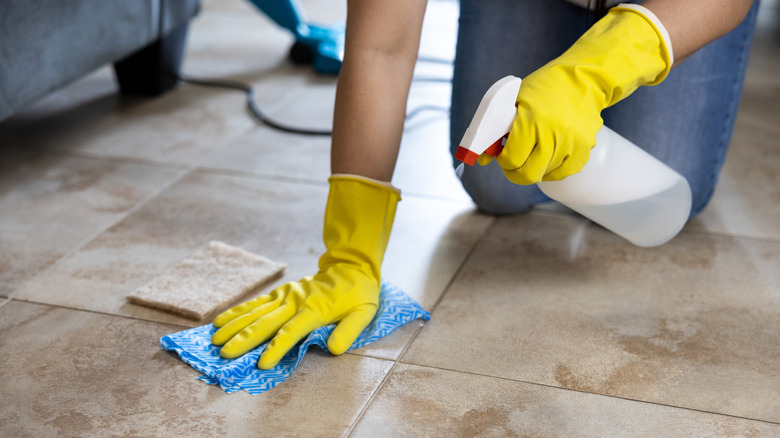The Only Way To Store Vinegar For Cleaning
No matter the cleaning task you have before you, be it descaling your dishwasher or removing streaks from your stainless steel appliances, vinegar is a versatile cleaning tool worth using. Not only does it excel at cleaning a variety of things, it is eco-friendly and non-toxic, making it safe to use around pets and children. Many people like to buy it in bulk, but what is the best way to safely store it to maximize its shelf life? Fortunately, the answer is simple: Store it in a dark, cool place.
There are a ton of different types of vinegar out there (for both cleaning and cooking), but you will want to snag some white or cleaning vinegar to use in your everyday household chores. They're fairly similar, with only a slight difference in their acidity levels. White vinegar has a 5% acetic acid level, while cleaning vinegar has 6%, which is what makes these such good cleaners. They can be used in a variety of ways to make your kitchen sparkle, as well as tackling other chores around the house.
Another terrific perk of using vinegar to clean is how it is made. Because it is fermented, vinegar requires no refrigeration and will take a long time to expire. It is also colorless, and will stay clear over time, so you don't have to worry about it staining your beautiful white kitchen countertops (unless they're made of stone or marble because the acid can etch these). Vinegar truly is an all-in-one wonder, but that's why it needs to be stored properly.
Vinegar storage should be dark and climate-controlled
Storing your cleaning vinegar properly is literally just as easy as buying a bottle, then setting it somewhere dark and cool, ideally in a place like a basement cabinet or in the bottom of your pantry. You should avoid transferring the vinegar to a separate container, especially those made of a metal material, as this could affect the purity of the product, (and possibly render your vinegar useless for cleaning). Keep it in the original plastic or glass container. Additionally, do not store your vinegar in the garage (although there are ways to use it around your garage); because temperature extremes can affect the acidity level, as can any exposure to moisture.
Once you open a bottle of vinegar, do your best to limit how long that cap is off in order to reduce the quantity of oxygen exposure. The best thing to do is work quickly to replace that cap as soon as you can, in order to keep the vinegar super fresh. Lastly, while vinegar's acidity is stable, allowing it to last for a few years, you will want to keep an eye on the bottle's stamped "best by" date. This tells you precisely when the vinegar will be at its peak performance. Most manufacturers typically state that this will be anywhere from two to five years from when the vinegar was originally produced.

